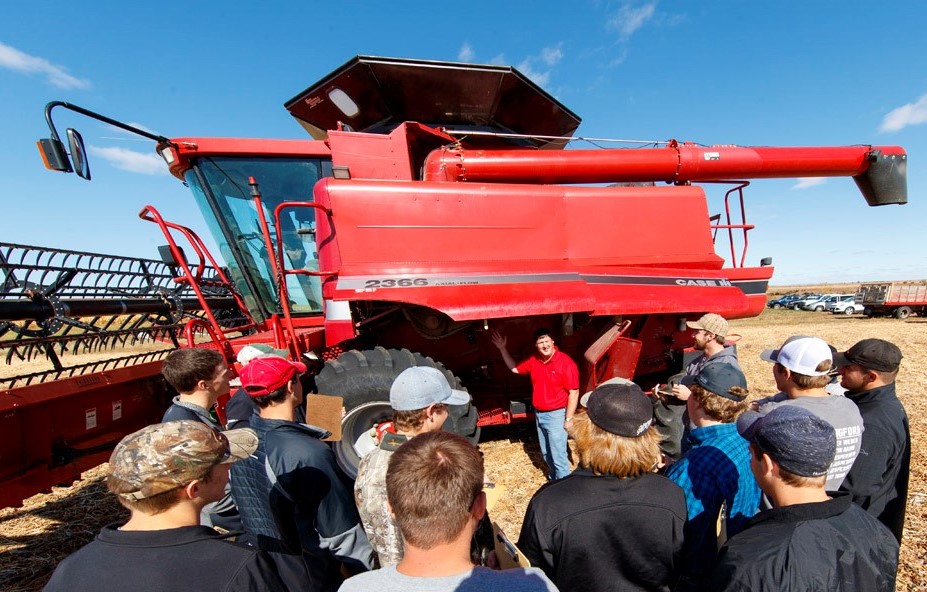NCTA 16-hour Ag Certificate approved

June 30, 2017
By Mary Crawford, NCTA News
Curtis, Neb. – A new undergraduate certificate in agriculture has been approved by a state education commission for the Nebraska College of Technical Agriculture.
The certificate which offers 16 hours of college credits was officially approved June 15 by Nebraska’s Coordinating Commission for Postsecondary Education at its meeting in Lincoln.
The program was created for college students majoring in a non-agricultural disciplines, high school students seeking a dual credit program in agriculture, or working professionals wanting to upgrade their agricultural competence.
“This certificate is designed to provide an introduction to crop and animal production systems, and is designed to provide students with a good understanding of natural resources and agribusiness management,” said NCTA Dean Ron Rosati.
“We deliver this undergraduate program through online and dual credit methods with the assistance of local high schools, and structure the 16-hour certificate so that a student can complete the requirements by their high school graduation,” Rosati added.
Such was the case this year for two students from York High School who took NCTA classes each semester as juniors and seniors, then graduated in May with a certificate in agricultural chemical applications.
Donovan Buss of York will attend NCTA this fall to complete one year at the Curtis campus, receive his associate degree, then transfer to the University of Nebraska-Lincoln for two years of coursework and earn his bachelor’s degree in agriculture.
Since NCTA is a participant in the State Authorization Reciprocity Agreement, the college is authorized to offer its online courses in most of the United States. All credits in the certificate program are transferable into an NCTA Associate of Applied Science degree.
“The courses we offer are from our NCTA curriculum and can be taught by a high school instructor with oversight by NCTA professors such as myself,” said Brad Ramsdale, NCTA associate professor and chair of the Agronomy and Agricultural Mechanics Division.
“The certificate courses are college-level and are of the same high quality, cover the same content, and have the same rigor as other college-credit courses offered by NCTA,” Ramsdale said.
High school students in the certificate program will typically take seven credit hours as a high school junior, then nine hours as a senior. The classes are three credit hours each (with the exception of Agricultural Careers which is one credit). The courses include Crop Science, Animal Management, Natural Resource Management, Introduction to Agricultural Economics, and an Advisor Guided Elective.
Online courses have the same student learning outcomes and assessment protocol as face-to-face courses, said Doug Smith, assistant professor and chair of the NCTA Animal Science and Agricultural Education Division.
“This opportunity will certainly benefit students who are seeking early opportunities at the collegiate level and a diversity of agricultural courses such as our Agricultural Education students who study a broad range of courses during their two years at NCTA before transferring to UNL for their final two years and student teaching experience,” Smith said.
“I appreciate the diligence and hard work that students make, demonstrating their leadership and dedication for a career as an agricultural instructor or youth program leader, or toward any agricultural career,” Smith added.
High school students interested in these dual credit or “concurrent” courses can contact their high school guidance counselors, see ncta.unl.edu, or visit with Ramsdale and Smith at 1-800-3CURTIS.
See companion article on Donovan Buss at http://go.unl.edu/zbo6
Download a PDF of this press release